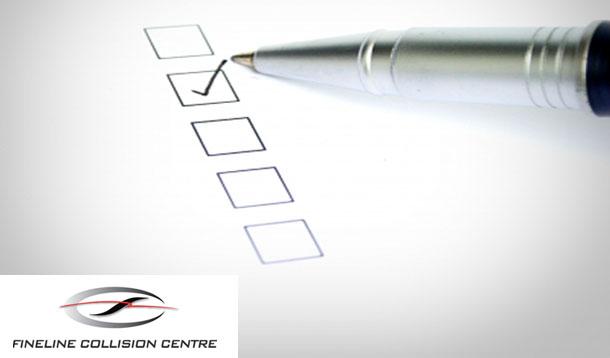
After my last post about what to do after a car accident, I received questions about what information is relevant to take down at the scene. FineLine Collision provides a Collision Handbook to their clients that lists what should be (at the very least) recorded at the scene.

Hopefully you won't ever need to use this post because you won't have a car accident. But just in case, it's always good to know what to do in the aftermath of a collision. If you've ever been in a car accident, you may have felt overwhelmed and frustrated. There are a lot of things that run through your mind so here's a checklist, courtesy of Mina Bajric from FineLine Collision, to help you if you're involved in a collision.
Remove the vehicles from the roadway if you are able and it is safe to do so.
In Ontario, police are required at the scene for damages that exceed $1,000. If the police are not required to come to the scene, they will direct you to the nearest Collision Reporting Centre.
Recall as much information as possible regarding the collision.
Write this information down.
Fill out on Accident Report at the Centre. Towed vehicles MUST go directly to a Collision Reporting Centre.
DON'T let any tow-truck operator pressure you. You have the right to have your vehicle towed wherever YOU choose.
I hope these tips help you if you're ever in a collision. Drive Safely!

A recent Consumer Reports survey asked 168,000 vehicle owners how satisfied they were with their auto repair shop. The survey found that most owners prefer taking their cars to independent shops rather than dealerships for repair work.